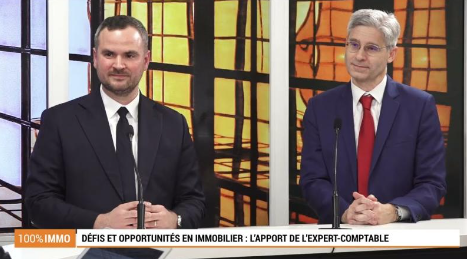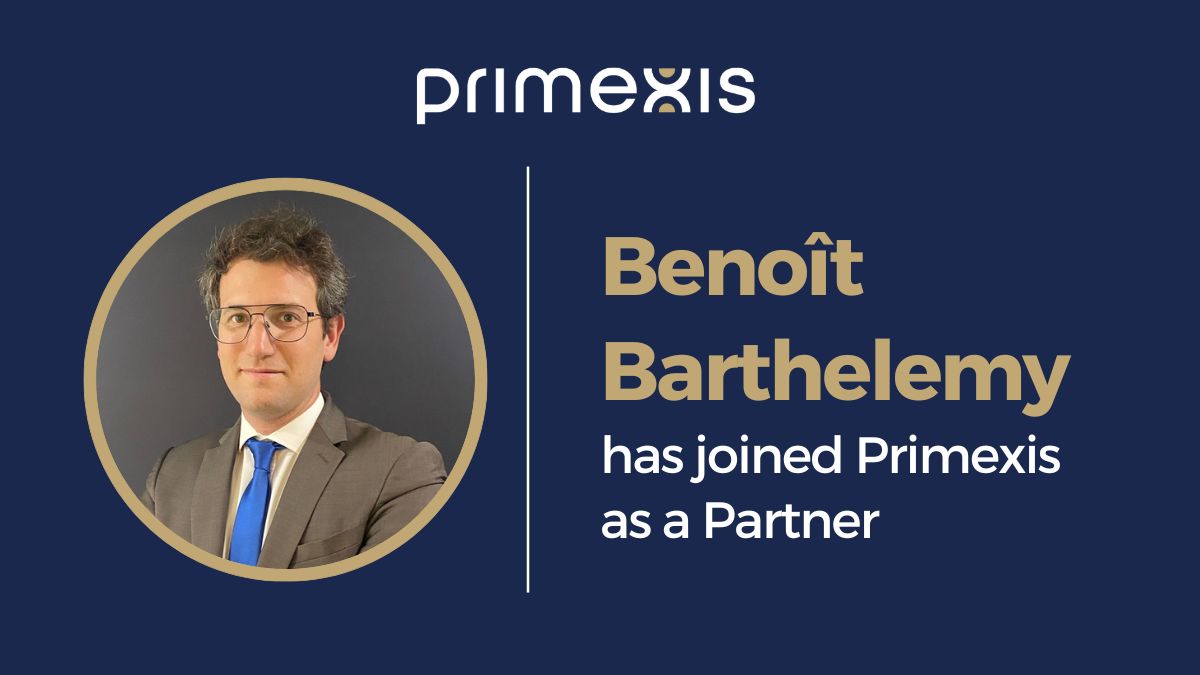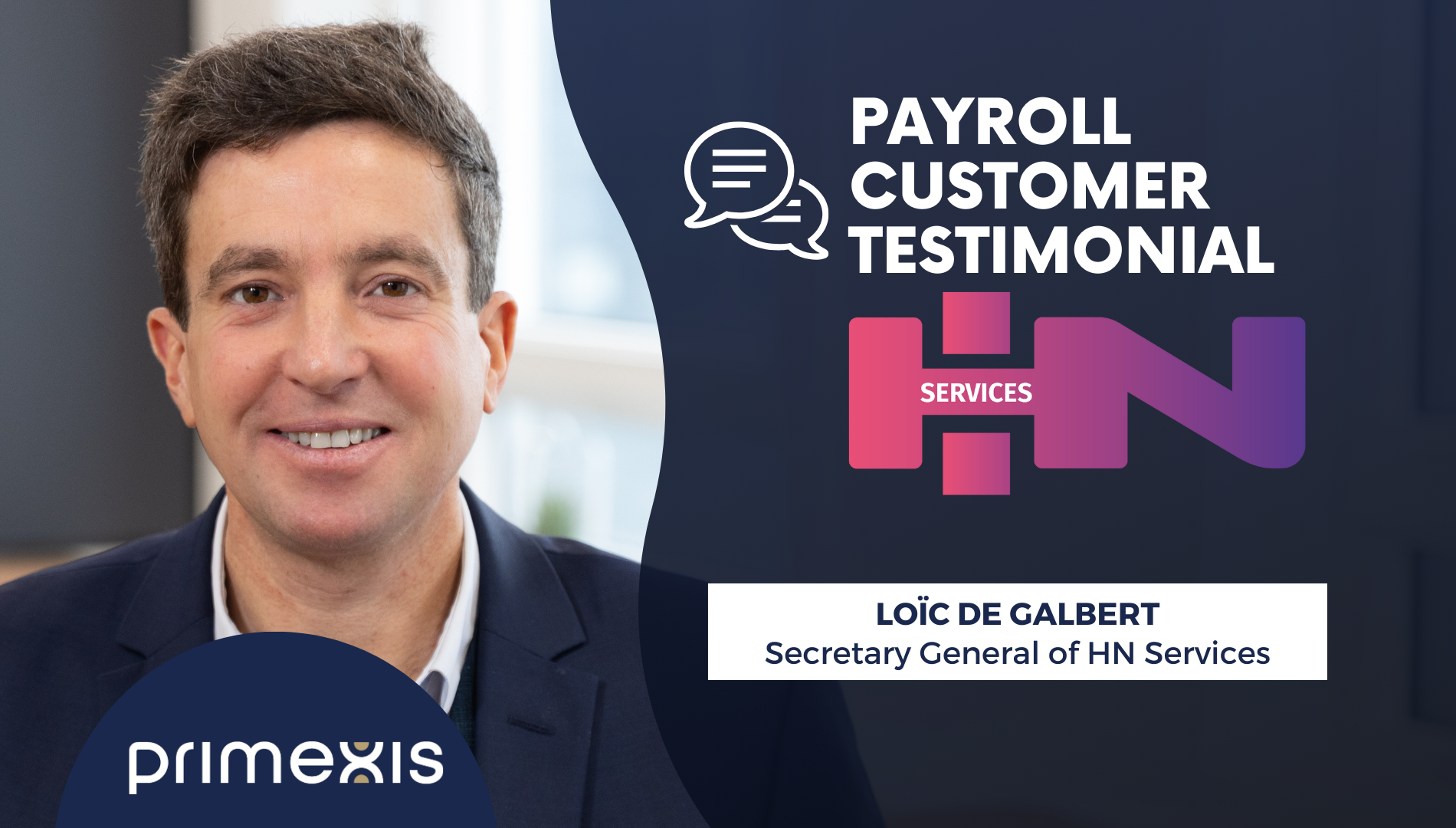MIPIM 2024 – France
Challenges and Opportunities in Real Estate,
Input from a Chartered Accountant

During MIPIM 2024 – France, Daniel Wickers and Alexis Gasto, partners at Primexis, specializing in accounting and financial consulting, shared their views in an interview with journalist, Fabrice Cousté. They discussed a number of subjects, including the impact of interest rates on the cost of debt, the downward trend of Real Estate asset valorization, and the emergence of green Real Estate as a driving force in the sector.
Could you present Primexis?
Alexis : Primexis is a financial consulting and accounting firm. We have the particularity of being in Paris La Defense in a single location with about 400 employees today. We are specialized accountants, and within our specialties, we have Real Estate. We are fortunate to work with both French and international clients – asset managers, investors, and fund management companies – and provide a large range of services that we will undoubtably discuss together.
And this has been going on for 46 years?
Alexis : Exactly. I cannot claim that I have been there since the start, of course. But we are fortunate to have stability in the senior management team, and also in our management team in the broadest sense, and we have genuine confidence from our clients, who are essentially Key Accounts. I tend to say that chartered accountants are companies’ general practitioners, and we are the specialists, like ophthalmologists or cardiologists.
What size today? What dimension?
Alexis: 400 in Paris, and we recorded a turnover of 50 million in 2023, a growth rate of just over 13% this year, which is very encouraging for the future. And this growth, I emphasize, is entirely organic.
Daniel, I’d like to ask you an obvious question: what is an accounting firm doing at MIPIM?
Daniel : Indeed, it can be surprising. As Alexis said, we have a Real Estate specialty at Primexis. We have more than 20 years’ experience in this sector. There are 4 of us at MIPIM today, Alexis Gasto, me (Daniel Wickers), our director, Jack Capps, and Selim Boutaleb, a young manager (who is participating for the second time). We come regularly, and this is the 17th time. And why are we here? To meet the players in Real Estate. In France, we are fortunate to have this incredible Real Estate Conference in Cannes, and we are here to meet our French and international clients and all our partners in the world of Real Estate.
I imagine the agenda is already full for these 4 days.
Daniel : That’s exactly right. Partners can be legal advisors, tax lawyers, or asset managers; everyone involved in the world of Real Estate.
What services does Primexis offer to all of its clients?
Daniel: The services we offer can be described as: Real Estate fund management, what we call Investment Real Estate, Transaction Services, assistance with the acquisition and sales of Real Estate structures, and consulting, Real Estate Advisory.
And, for example, the department you supervise, Real Estate fund management, Investment Real Estate, what does that entail?
Daniel: Investment Real Estate consists of 50 people, 2 partners, and 3 senior managers; a very fine team who only works in Real Estate today. Our day-to-day job is producing reliable financial information on time. This is what our clients expect, whatever the international accounting standard required.
Were there any particular challenges that you faced in the last year or so?
Daniel: Above all, our clients have faced a new inflationary environment. I believe that in a year and a half, or a year and a half and a couple of months, the EURIBOR rate has gone from zero, virtually negative, to near 4% today. There are many reasons for this: we are in a post-Covid environment, international logistics flows have seized up, driving up costs, and the war in Ukraine. The challenge our clients face today is the drop in value due to rising interest rates. This leads to higher interest charges for our clients and problems that can arise in terms of debt ratio, the famous Loan to Value (LTV).
Have they had any particular difficulties? Do they come to you at that time to revalue these assets?
Daniel: Yes, this is where our role as advisors comes into play. Today, there are depreciation issues concerning Real Estate companies’ assets and shares. Almost all our clients have called us, or we have alerted them about the accounting and tax issues involved. And there’s a little mechanism that currently exists in terms of deficits, i.e., when the situation improves and we recover these structures, there are tax issues that may arise when the provisions are reversed.
There is a lot of talk about property development, which is in crisis. What are your developer clients telling you?
Daniel: What our developer clients told us a few months ago is that they are having real difficulty in finding projects and financing them. One of our clients told me a story where he went to see his banker who told him, “as soon as you sell 80% of the assets, we are ready to finance you,” knowing that he provides 20% in equity. The conclusion is that, at the time, bankers were not keen on financing this type of operation.
Alexis, could you also talk about the difficulties the Real Estate world is facing at the moment?
Alexis: Yes, of course. We tend to assist asset managers and investors, and we could say that we have all gone through the wringer recently. We talked about the post-Covid era, which changed the way offices are used, so the tertiary sector has suffered a lot. We talked about inflation and the war in Ukraine. But for our investor friends in the Paris tertiary sector, we have the subject of the bioclimatic Local Urbanism Plan (PLU) with issues of reallocating some of the office space in buildings that had been flagged. And finally, what we see when working with a lot of our clients, often investment funds, is that there is a debt crisis, meaning increased borrowing costs, so the underlying value of Real Estate has deteriorated, and this has caused problems for some of our clients and funds. We therefore had to find solutions. Solutions for funds include refinancing, meaning renegotiating debt with third-party lenders or convincing investors that this was not the right time to sell or liquidate the fund. We assisted our clients in drawing up Business Plans, preparing general meetings and boards of directors, amending fund regulations, as well as renegotiating or identifying new third-party bankers to refinance their entire portfolio.
We can see it within this changing environment, completely turned upside down with this new rate paradigm; perhaps they had gone too low. Today, they are quite high. How are you coping? What are you doing to respond to your clients’ challenges?
Daniel: Our business is doing well. Whether our clients have constraints or opportunities, they need our advice. Over the last few months, we have been working on a number of transactions with our clients, specifically the sale of a Distressed asset for a symbolic price and all of the accounting and tax challenges that arise from it: debt write-offs, asset write-offs, and so on.
Now, let’s talk about the second department, everything related to Transaction Services. Can you tell us a bit about it?
Daniel: It’s a bit like the counterpart to constraints. We also have opportunities, but we have clients who are positioned on distressed assets. In general, our Transaction Services activity focuses on proposing a share price formula, negotiating price, and reviewing the target structure’s assets and labilities. For assets, if the price is symbolic and the starting price is symbolic, we really need to focus on the structure’s ability to generate cash flow in the future.
And especially since legislation changes rapidly?
Alexis: Yes, it is changing rapidly. It starts from a very clear premise: few transactions over 2023 and tax revenue issues at the municipal level. This can be briefly explained by the difference between an Asset deal, where part of the tax revenue will be collected by the locality, and a Share deal, where the tax revenue is generally collected by the French State. The Finance Act 2024 already stipulates that it will be mandatory to declare a certain number of items in the transaction deeds when selling company shares, i.e., when we are in a Share deal. We see this as a first step, even a step backwards, towards a future change in tax base. This is by no means confirmed, but in view of the concerns raised by our contacts in various municipalities, we notice that Asset deal versus Share deal is back on the table, especially for the tax base because on the one hand, you tax the market value of the building, and on the other hand, you tax the market value of the company’s shares. Liabilities are deducted from the price of the shares.
We are going to talk about the consulting activity, Real Estate Advisory. Can you tell us about it?
Alexis: Of course. Real Estate Advisory is made up of consultants specializing in Real Estate who work directly at the clients’ location, in particular, in all the functions of the financial department. And this offering has three components: Transaction Services that Daniel just talked about. We also have two other parts: operational reinforcement and operational assistance. In other words, we go to the clients’ location when necessary, during peaks of activity, as replacements, or for a new project. In terms of new projects, two major themes stand out today. First, an overhaul of the finance function where our clients ask in which way they will deliver and produce financial information, and we have the extra-financial part where we will assist our clients in two areas: implementing and reporting ESG or sustainable finance at our clients’ locations.
It’s true that we talk a lot about ESG – environmental, social, and governance aspects. More than just a trend, it’s now firmly established in the landscape, and we’re even talking about the green value of buildings?
Alexis: Exactly. We recently organized a conference on the subject at Primexis. Our starting point was very simple: 2020-2021 and at the end of 2021 and the beginning of 2022, green value had little or no impact on asset value, or at least at the stakeholder level. Today, and from 2022, it has been confirmed for 2023, and now, in 2024, it has become a priority. It is now impossible to make an investment decision without considering ESG factors. This applies to investors, lessees, and even more so for those who finance banks.
What does this mean for your clients? What are their challenges?
Alexis: Their challenges are quite simple. There is raising capital, especially when you are working with what we’ll call retail or open-end funds, but the same applies to closed-end or professional funds. Raising money is key! Without money, you can’t invest. So, there is a lot of work to be done in this area. If we take the retail example, in the referencing of asset management advisors or distributors, you cannot present a new project without green value or reliable ESG reporting or without regulation that guides investment towards Green. This takes several forms. For French funds, the most common form is obtaining an SRI label following a subscription in compliance with the SFDR – Article 8, Article 8 hybrid, or Article 9.
Is that all there is to it for investors and even for the general public?
Alexis: Yes, absolutely!
How do you assist them? Is it with ESG reporting in particular?
Alexis: Yes, in fact, what we have seen is that there is a lot of work to be done to define the standards that are applicable to our clients, which are different between a Corporate-type company and funds. Corporate is CSRD, with an S, and for funds, it is more SFDR; of course, in addition to a common base of regulations, taxonomy, French Energy and Climate Law, and so on. On this subject, we are going to help them check what is applicable and, in particular, the added value that we will bring is guiding them in their choice of fund classification between SFDR Article 8 and Article 9. At present, we are noticing that it is wiser to opt for a strong Article 8 on solid foundations, rather than opting for Article 9 and risking a downgrade of their financial product because in terms of image with all stakeholders in the Real Estate microcosm, it is a very small world where you may suffer from an investment outflow and a loss of confidence throughout the Real Estate value chain.
____________________
The full interview is available on Primexis’ YouTube channel.


